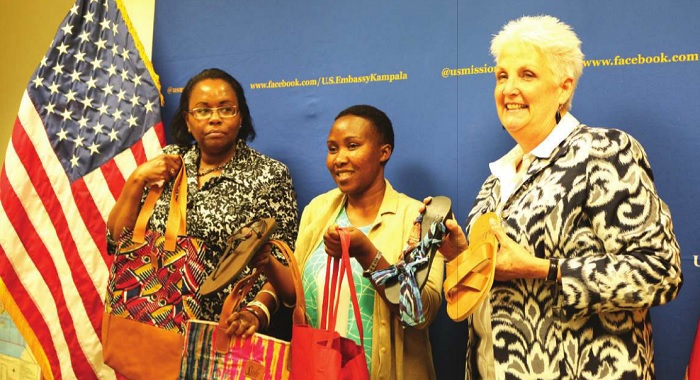
AGOA’s agony: Why 10-year extension of duty-free access to the US market could be another lost opportunity for Uganda
When the US passed the African Growth and Opportunity Act (AGOA) 15 years ago, there was a lot of promise. Many African countries, especially the oil exporters, have registered substantial progress under AGOA. However, most Ugandans would without any hesitation describe AGOA as a lost opportunity. On June 25, 2015, the US government gave the initiative a new ten-year mandate, with a promise for better opportunities.
Deborah Malac, the US ambassador to Uganda, says Washington is reviewing Uganda’s eligibility to participate in AGOA to pave way for continued duty-free access of its products to the US market.
And though the completion date of the review process carried out annually is yet to be known, she says her country wants Uganda, like the rest of the Sub Saharan African States, to increase her exports to the US as a way of accelerating economic growth and development.
“AGOA, which has been extended to 2025, is an important tool to help Uganda achieve its goal of becoming a middle income country,” she told Journalists at a press briefing at the US Embassy in Kampala on August 10.
“It is therefore important that the Ministry of Trade, Uganda’s AGOA office and the US government continue their coordination and develop an AGOA national strategy.”
Her fear, however, is that she has had conversations with Ugandans who still believe that it is too difficult to take advantage of AGOA because of the high standards for the products to be met.
And yes, she was indeed categorical that requirements and standards of products to be exported to the US have to be met because that is what needs to be done to make a business success.
Currently, extended to 37 sub-Saharan African countries, AGOA offers preferential treatments to more than 6,000 products across the US market.
But economists and trade captains argue that like it has been in the last 15 years, Uganda may not reap much from the renewed trade initiative unless the quality of the products and the unfavorable business environment are addressed.
“There’s a general problem facing the production sector in Uganda; production is characterized by the use of basic technologies, lack of control over production conditions, high input costs, and infrastructural deficiencies – especially of road, rail, irrigation, electrical power, storage and refrigeration which are critical in trade competitiveness,” says Miriam Katunze, and a research analyst at the Makerere University based Economic Policy Research Centre, and who is re-known author on AGOA.
“These constraints undermine the ability of firms to fully control production conditions to ensure consistency and reliability in export supplies… this explains the country’s failure to fully exploit trade opportunities under AGOA.”
As such, she says, there’s need to develop a framework for and enforcement of standards for products as well as support clearly identified niche sectors and subsectors including agriculture, agro-processing, logistics and distribution, education services, tourism, textiles, minerals, leather and leather products, and petroleum and petroleum products based on where it has comparative advantage.
She also says there’s need for the government to re-align mandates and reporting structures between the Export-Led Growth Strategy Unit (ELGSU) and the relevant ministries, departments and agencies to expedite export related issues, circumventing red tape that has haunted the initiative over the past years discouraging exports and so is investments in various production sectors.
“Currently, personnel from ELGSU assert that they report directly to the President and this has several implications including the stifling of institutional development, courting of political interference, policy inconsistencies and questionable accountability,” she says, adding that there is also need for a tailored, evidence driven strategy for AGOA including the use of special economic zones (SEZ) that would give the country the policy space to provide critical support and incentives to export firms and a favorable Foreign Direct Investment policy component that will ensure foreign capital inflow to supplement domestic investments in the export sector.
This comes at the time the data from the Bank of Uganda shows that the country’s export earnings to the US has not grown greatly as earlier anticipated compared with its exports to China and the European Union even with the AGOA opportunities.
For instance, Uganda’s exports to the US including those under the Generalized System of Preferences have grown from $3.28 million in 2000 to merely $32.18 million in 2015 while US exports to Uganda has increased from $28 million to $91.13million during the same period.
But this is far less compared with Uganda’s trade with China and EU whose exports increased from $0.28 million and $145.89 milllion in 2000 to $57.62million and $465.93 million in 2015, respectively.
On the other hand, Chinese and EU exports to Uganda have increased from $31.4 million and $185.5 million to $731.88 million and $559.64 million during the same period under review.
 The Independent Uganda: You get the Truth we Pay the Price
The Independent Uganda: You get the Truth we Pay the Price


